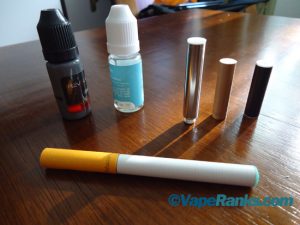Vapers with Very Limited Smoking History Wanted for Long-Term Vaping Study
So-called “unicorns”, vapers with a very limited history of smoking tobacco, are wanted for a long-term study on the potential dangers of vaping.
 Despite what vaping opponents might say, electronic cigarettes were designed to be a less harmful alternative to smoking cigarettes, and have always been promoted as such. The vast majority of electronic cigarette users are former smokers or current smokers trying to quit or cut down on cigarettes, which, on hand, suggests that these devices are fulfilling the goal they were created for, but also that proving their harm-reduction potential is very difficult. For example, it’s almost impossible to prove that a former smoker’s lung damage was caused by smoking cigarettes, and not by the vaping habit that helped them quit.
Despite what vaping opponents might say, electronic cigarettes were designed to be a less harmful alternative to smoking cigarettes, and have always been promoted as such. The vast majority of electronic cigarette users are former smokers or current smokers trying to quit or cut down on cigarettes, which, on hand, suggests that these devices are fulfilling the goal they were created for, but also that proving their harm-reduction potential is very difficult. For example, it’s almost impossible to prove that a former smoker’s lung damage was caused by smoking cigarettes, and not by the vaping habit that helped them quit.
Now, an international team of researchers is preparing to launch a major study into the effects of electronic cigarettes by focusing on vapers with a very limited history of smoking tobacco.
“To date, almost all assessments of the health of vapers have been among ex-smokers, where it is impossible to distinguish any small effects from vaping from the residual effects of long-term smoking,” the Veritas Cohort homepage states. “This study will allow us to test the hypothesis that vaping alone poses no measurable health effects.”
As its name suggests, Veritas Cohort will be a multi-country cohort study of daily vapers who have smoked very little, spanning over six years. Data collection will be done through clinical assessments of lung health, as well as self-reported health status and other measures. The goal is to, “for the first time, observe the health outcomes of exclusive vapers compared to controls with a history of no tobacco use”.
The study will be carried out by an international team of researchers and public health experts, including Professor Ricardo Polosa, a respiratory physician at the University of Catania, and American epidemiologist Dr. Carl V. Phillips. Polosa has already carried out a similar study on a much smaller scale in Italy, which after 3.5 years did not find any health problems in participants.
“We know that vaping e-cigarettes is far less harmful than smoking burn-out cigarettes, but some people fear that there are still measurable health risks,” Dr. Phillips said. “So far there is no clear evidence of harmfulness, but there could be, because we haven’t looked closely enough to rule out or confirm the existence of a tiny but detectable risk. Vapers should be aware of these risks in order to make an informed decision, and a study like this is the only way to discover this information. Claims that vaping carries significant risks are now widespread – the study will help counter them.”
Veritas Cohort is designed as a multi-country endeavor, with over 20 sites around the world, from the UK, to Canada and even Costa Rica. Unfortunately, according to the study’s official site, only 170 vapers have signed up to take part, which isn’t nearly enough for a cohort study. Because not enough potential participants have actually registered yet, the candidate search phase has been extended to mid-September 2020.
The problem is that “vaping unicorns”, daily e-cigarette users with a very limited history of smoking tobacco (having smoked less than 1000 total cigarettes (50 packs) in their life, currently be a non-smoker, and to not have smoked for at least 2 years), are a very rare breed, which makes finding the few willing to participate in a 6-year-long study incredibly difficult.
If you’re one of these rare unicorns and you live in one of the countries involved in this upcoming study, head over to the Veritas Cohort website and sign up. We, the vaping community, desperately need your help!
















